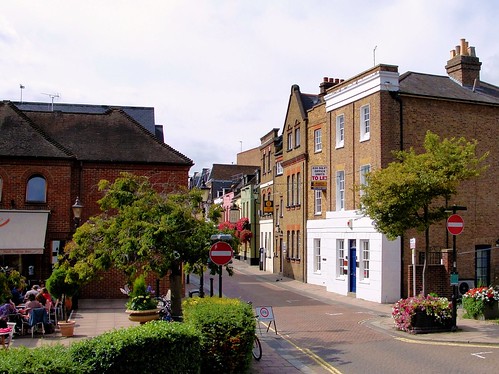We dismounted to push our own bikes and a man came running off the bridge; on his way past he caught his arm nastily on my handlebar, but he didn't stop
 |
| Pic - Maxwell Hamilton |
The first hurdle in dealing with a crisis is recognising that there is a crisis: the aeroplane is on fire; the man with the knife is going to stab you; the pain in your chest is a heart attack; the light is fading and the temperature is dropping and your companion cannot ski down the mountain. The heroes, the survivors, are not always the strongest and fittest - sometimes they are merely those who recognise the danger.
My friend and I were intrigued but not worried and grinned at the strange cries from the two excitable women on the bridge, until we could hear them properly. "Help us!" they were yelling, but clearly they were in no danger "help us! We need Help". Nothing made sense.
There was a man in the water .
The Necker cube flipped and the strange scene resolved itself.
A man was in the river. White haired, fully dressed, he clung silently to the floating pontoon to which a handful of boats are moored. At first sight easy to help, but look: a chained and heavily barb-wired gate guarded the pontoon preventing access. Only 50 metres from the bridge he was nevertheless beyond help from the bank while, 200 metres downstream, two fishermen in a boat sat with their backs to us, oblivious to the women trying to attract their attention. With a jerk I realised that if the man lost his grip then someone was going to have to go into the water and swim to reach him.
I can swim - but I am not the sort of swimmer who should strike out into the Thames and attempt a rescue. But what if no one at the riverside was that kind of swimmer? One thing was clear: if I was going to go in the water then a leap from the bridge wasn't the best way to start and I nervously eyed up the river bank working out the best route.
And then almost as quickly as the danger had come, it disappeared: the fisherman heard and heeded the wild women's callings and with a burst of outboard motor were quickly alongside the floating pontoon, they leapt out and pulled the man safely from the water on to the deck. A policeman arrived on the bridge - a numpty who charged down to the pontoon to stand, uselessly, on the wrong side the barbed wire. The Teddington lifeboat was summoned…. and we continued on or way.
Later that afternoon I reflected that I entirely lack any journalistic aptitude: I could have interviewed the bystanders - did he jump or did he fall? How long was he in the water? I could have taken the name and the photographs of the alert women on the bridge and the lifesaving fisherman and written it all up for the Ricky&Twicky.
At least I have got a blog to tell the tale.
